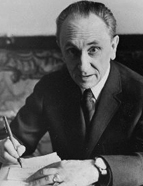

In these respects, João Ameal ’ s História de Portugal [History of Portugal] is, to a large extent, a revisionist project in line, once again, with the integralist traditionalism of his formative period – something which, incidentally, he embraces. In 1945, referring to Sardinha ’ s historical revision project, he wrote: ‘Numerous are the figures who have been cleansed of a thousand shadows or slanders in order to have their true and pure splendour restored . Numerous, too, are the false idols, raised in the public square, who were strip ped of their fake adornments and tie d to the pillory, where they have remained ever since – throwing them (as in the tribune ’ s famous apostrophe) “ into the galleys of History ” . Simultaneously, or in the wake of Sardinha, many deserving researchers have committed themselves to the splendid task of restoring historical truth ’ ( Europa e os seus fantasmas [Europe and its ghosts] , 1945 , p. 242). In this respect, Luís Reis Torgal even writes that in Ameal ’ s História de Portugal [History of Portugal] , there is a real ‘revisionist zeal’ and that he, more than a historian, was ‘a disseminator, [ … ] in the sense that communication methods far outweigh accurate knowledge [he was] the disseminator of the time when H istory was (also) at the service of the regime [ … ] João Ameal was the authentic “historian of the regime”’. Something that was pointed out to him by his contemporaries even during the Estado Novo – such as Victor de Sá , who, in 1961 ( História e Actualidade) [H istory and Current Events] , compared him to the chroniclers of the royal court.
More broadly, João Ameal replicated some of these ideas in his reflections on ‘European civilisation’ from 1945 onwards – in the book Europa e os seus fantasmas [Europe and its ghosts] (1945), in various conferences, in the ‘Idea of Europe’ course he taught at ISCSPU in the 1960s and, in particular, in his História da Europa [H istory of Europe] (1960). In the latter, the Enlightenment, the French Revolution, Liberalism and Communism are also ‘static moments’ in a long civilisational journey based on the ‘Hellenistic-Latin-German-Christian experience’ (‘O Ocidente e Portugal’ [‘The West and Portugal’] , pp. 188 et seq.) spread throughout the world from the 16 th century onwards. And, in this particular sense, his History of Europe is seen from the point of view that we might describe as ‘Portuguese’, in the sense that Portugal is seen as one of the main agents of this dissemination of European civilisational values, a pioneer in ‘teaching the West to every m a n and people’ ( i dem , p. 193).
This work is financed by national funds through FCT - Foundation for Science and Technology, I.P, in the scope of the projects UIDB/04311/2020 and UIDP/04311/2020.
